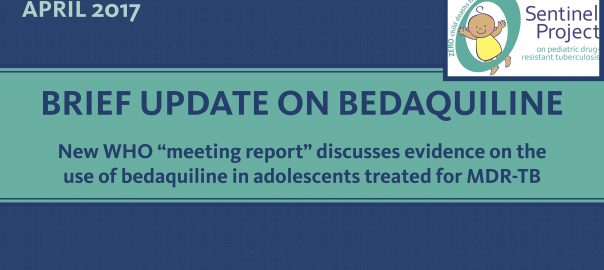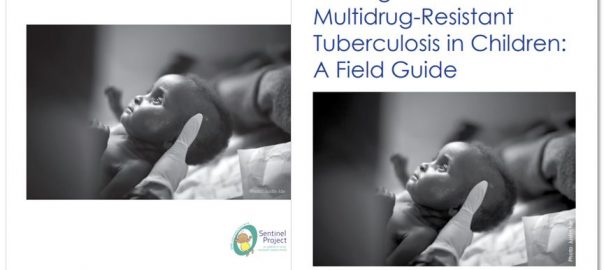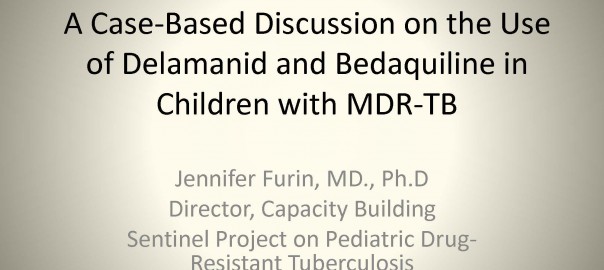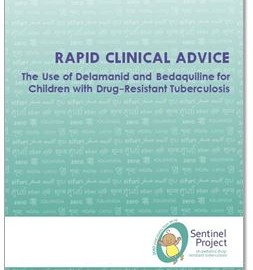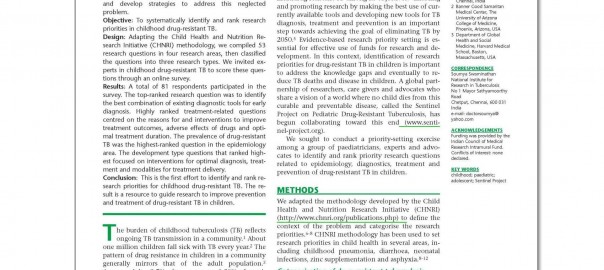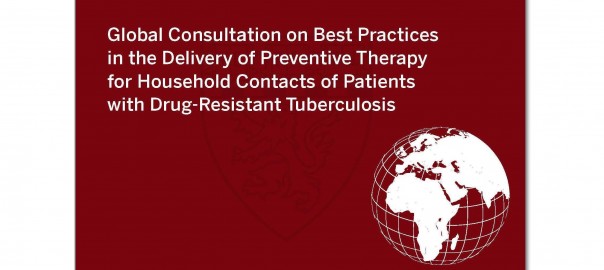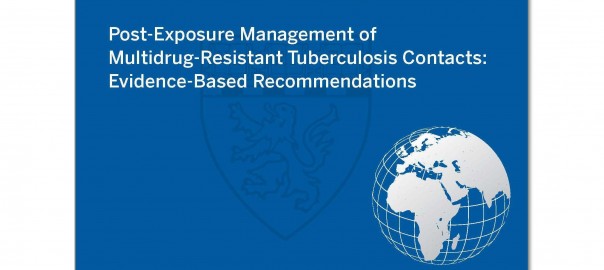Webinar | Injectable-Sparing Regimens for Children
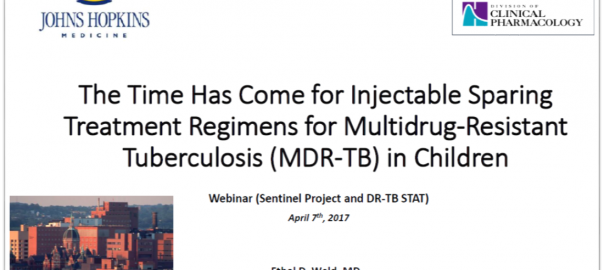
On April 7, 2017 the Sentinel Project co-sponsored a webinar with DR-TB STAT, entitled “The Time Has Come: The Case for Injectable-Sparing Treatment Regimens for Children with MDR-TB.” Dr. Ethel Weld reviewed evidence and experience that supports the treatment of children with MDR-TB disease using regimens that do not require an injectable agent. Dr. Weld was joined by Dr. Kelly Dooley as commentator and Dr. Jennifer Furin as moderator. Slides from the webinar with Dr. Weld are available here, and the corresponding article published on March 23, 2017 in the Lancet Respiratory Medicine is available here.

